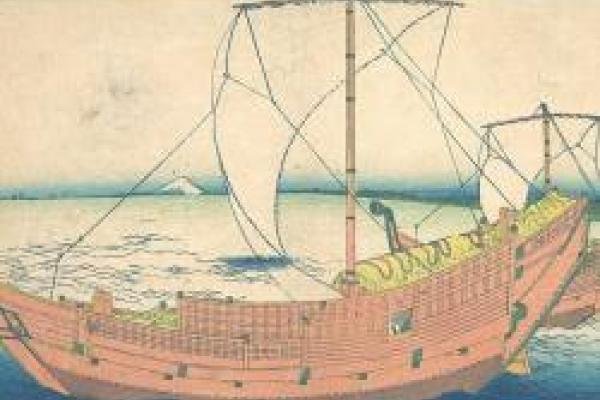
The Institute for Japanese Studies presents:
Jakobina Arch
Assistant Professor of History
Whitman College
Lecture Title: Cargo Ships, Shipwrecked Sailors, and the Nearshore Environment of Tokugawa Japan
Flyer: Arch Flyer
Abstract: As a way of rethinking the historical role and importance of the Japanese archipelago's marine environment, this talk focuses on what we can learn from looking at coastal cargo ships and their crews during the Tokugawa period. These ships were of a new type specifically developed within and reflective of the particular cultural as well as physical environment of the period. Because coastal shipping was essential for the movement of tax rice and other products within Tokugawa Japan's booming merchant economy, the way that cargo sailors worked with and adapted their ships and behavior to the marine environment directly shaped the history of Tokugawa Japan. Unfortunately, these sailors had no tradition of keeping standard records such as ship's logs. However, the government records of returned castaways provide testimonies for how sailors and shipwrights dealt with the particular environmental hazards of Japan's nearshore waters, and the material evidence of ship construction supplements that testimony.
Jakobina Arch is an Assistant Professor of History at Whitman College in Walla Walla, Washington. She completed an MSc in Biology at Dalhousie University before shifting to Japanese history with a PhD in History and East Asian Languages from Harvard. Her research focuses on marine environmental history in Japan, especially in the early modern period. Her first book, Bringing Whales Ashore: Oceans and the Environment of Early Modern Japan, in the University of Washington Press's Weyerhaeuser Environmental Series, focuses on the many roles of whales, and the marine environment they represent, in Tokugawa society and culture. She has also published two chapters in edited volumes related to whaling in early modern Japan, and an award-winning article on postwar Japanese whale meat consumption in Environmental History.
Free and Open to the Public
The Institute for Japanese Studies Lecture Series is supported by a U.S. Department of Education Title VI grant to The Ohio State University East Asian Studies Center.
